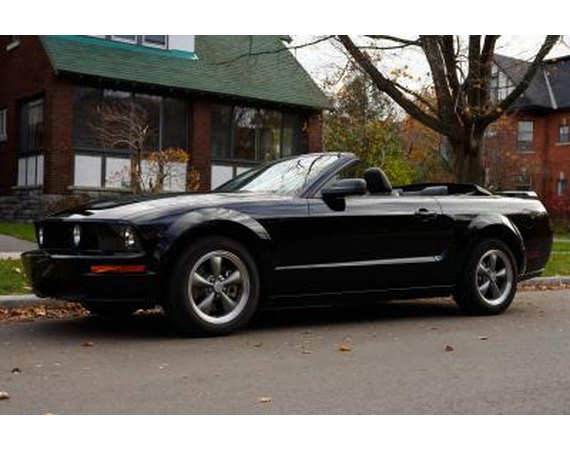Refinancing your auto loan requires you to transfer the balance of your current loan to another auto loan provider. If you have bad credit, refinancing might not prove worthwhile. Consider the problems you might face when trying to refinance and how you might overcome approval issues.
Traditional Lender
Your credit might not be as bad you think. If you've consistently paid your current auto loan on time, you may have improved your credit score. Apply to a lender in your area, such as a bank or credit union. If your credit has improved, you might obtain a loan approval with a better interest rate, which can save you thousands of dollars over the term of your loan. Check the websites of lenders in your area to obtain interest rate offers for used car before deciding where to apply.
Subprime Lender
A subprime lender offers more leniency for bad-credit borrowers. You don't necessarily need good or excellent credit for approval, although some established credit is often required. A subprime loan often requires higher interest rates and loan restrictions. You might have to pay a large down payment money and borrow for a short loan term to increase your vehicle equity and decrease the lender's risk. Because of the higher interest rate and shorter term that subprime loans often entail, you're likely to pay a higher monthly payment amount and increase the total payback amount of your loan.
Co-signer Option
If you don't want to use a subprime lender or couldn't obtain a loan approval from any lender, use a co-signer. A co-signer secures a borrower's auto loan, resulting in lower interest rates and less loan term restrictions. Your co-signer should have good to excellent credit and verifiable income. Co-signers are equally responsible for a loan, so finding one might be difficult. If you default on your refinance, your co-signer's credit will also suffer. Ask a close friend or family member to co-sign your loan and apply to a lender with low rates.
Considerations
If you're currently behind on your car payment, you aren't likely to obtain an approval for your refinance. Before applying, pay your past due car payments, as potential lenders aren't likely to approve a new loan while other loan balances are past due. If you obtain a loan approval with a higher interest rate than you currently pay, the refinance is probably not worthwhile. Unless you're about to lose your vehicle to repossession, stay with your current loan provider until your credit improves.


























